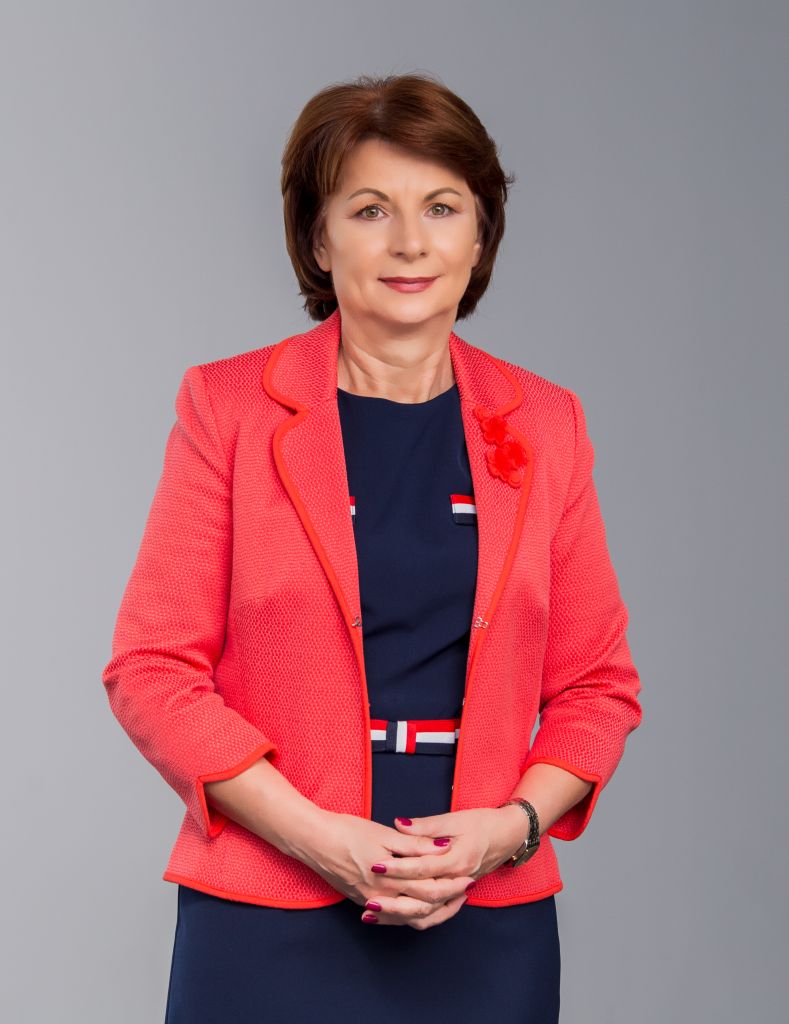
People need to be listened to and heard, and in turn, they will do the same. (Mariana Vaida, General Manager BIA HCS)
WHAT STRATEGIES DO YOU HAVE FOR IMPROVING RETENTION AND MOTIVATING COLLEAGUES?
It is indeed difficult to keep people motivated when we are surrounded by challenges, and the labor force shortage is felt across all sectors. At BIA, we have colleagues who have been part of the team for 17 years, as well as colleagues who joined a few years ago or just a few months ago. Thus, we see every day how different generations can work together if they respect each other’s principles and choose communication over strong ego displays.
In my opinion, there are no universal formulas for retention or motivation, but rather solutions that are applied depending on the people. People need to be listened to and heard, and in turn, they will do the same.
Creating a pleasant and attractive work environment is essential for retention and motivation, but it is not enough if it is not accompanied by open communication, respect, empathy, and emotional support. In our work, we face situations where the client transmits stress and pressure, which we must be prepared to manage and respond to professionally. This is where support from managers comes in, both technically and emotionally. The manager’s example is crucial in guiding the steps and helping to build the careers of the people in their team.
WHAT ARE THE CURRENT DIRECTIONS IN HUMAN RESOURCES DEVELOPMENT, AND HOW DOES THE BIA GROUP ALIGN WITH THESE TRENDS TO REMAIN COMPETITIVE?
At this moment, human capital, alongside technological capital, is the aspect through which we can make a difference in the market. At BIA, we have always promoted the value of the team, as evidenced by the fact that in our marketing and sales processes, the main argument is the team and everything it represents: skills, experience, trust, and motivation. To face current and future challenges, we are increasing technical competencies through training tailored to our needs and the technologies we implement, but we also ensure that we address the personal development needs of our colleagues, so that people are prepared for new technologies and that resistance to change and fear of the new are minimized. This way, every day we do what we need to do, but also what we enjoy doing.
HOW DO YOU COllaborate WITH ORGANIZATION LEADERS TO INTEGRATE HUMAN RESOURCES DEVELOPMENT OBJECTIVES INTO THE COMPANY’S GLOBAL STRATEGY?
Every year, we organize operational meetings and board meetings with all the managers to discuss the objectives and finalize the budget. The team leaders thus learn about the company’s major objectives and even propose their initiatives for new objectives. Subsequently, in operational meetings, we analyze each major objective, and determine the implementation method, strategies, tactics, and sub-objectives for departments, and at the employee level. This process, in which we involve managers in defining and implementing the objectives, works. Leaders find meaning in what they do, believe in the manager’s vision, and are motivated to motivate their colleagues.
What is the importance of organizational culture in strengthening and supporting colleagues, and what initiatives do you undertake to cultivate an environment that supports their development?
The challenges of the era we live in, from global issues such as wars, the climate crisis, migration, population aging, artificial intelligence, to industry-specific issues, the place we live, or the location where we conduct our activities, leave their mark on our development.
In a context where hybrid working is the norm in our team, and colleagues meet weekly or sometimes monthly, organizational culture serves as the pillar that supports the team. Often, when people work from home, they tend to only report the difficult situations they encounter to their managers, and the positive things, even if they exist, are not communicated. In such situations, effective communication, trust, and empathy are very helpful. It also matters that we believe in the same values and apply them in our work, regardless of where we work.
We work with professionalism, and passion, always in partnership. We take pride in the fact that for over three decades we have been providing solutions that successfully cater to all types of clients. The recommendations of our partners are proof of our professionalism throughout our collaboration, and they are those moments that bring us joy and unite us, no matter where we work. We give our business partners our full attention, dedicating our time and the quality of our work to them, living for what we do every day, and ensuring they receive the best services. Through trust and effective communication, we establish mutually beneficial relationships, laying the foundation for each new partnership.
What types of benefits contribute to the well-being of the team and support the development of a healthy organizational culture?
We periodically assess the activity, as well as the preferences of our colleagues regarding working hours and flexibility. Decisions are made together, to ensure that everyone feels good at work.
In July 2023, we implemented the “Feedback Box” project with the wellbeing team, which involves completing anonymous and/or signed online questionnaires through which colleagues can transparently express opinions, concerns, and suggestions for improvement regarding the work environment, professional activity, personal situations, etc. The questionnaires are analyzed quarterly by the company’s top management, and many of the colleagues’ expectations are translated into benefits.
Currently, we have a hybrid work schedule, which includes 3 days in the office and 2 days working from home. Office attendance is managed through a telework scheduler. Of course, there are exceptions to the 3-day/2-day rule, depending on each colleague’s needs, which are reflected in additional clauses to individual employment contracts. Additionally, the start and end times of the workday are flexible; colleagues can start work between 08:00 and 10:00 and finish between 16:30 and 18:30.
The benefits package includes, among other things, days off for each colleague’s anniversary, meal vouchers (worth 40 RON per voucher), a medical subscription with access to various clinics and hospitals, transportation reimbursement to and from work, and fruits at the office.
We also support professional and personal development through technical training to deepen knowledge of platform functionalities and through professional training courses. Starting in April 2024, we implemented the “Bookster” project, providing books at the office for team members, through the company Bookster.
Additionally, in weekly department meetings, operational aspects, matters related to the work environment, and internal communication, are analyzed. These aspects are considered in management decisions, to improve our work.
READ ALSO:
PROFESSIONAL PROFILE: MARIANA VAIDA, GENERAL MANAGER BIA HCS


